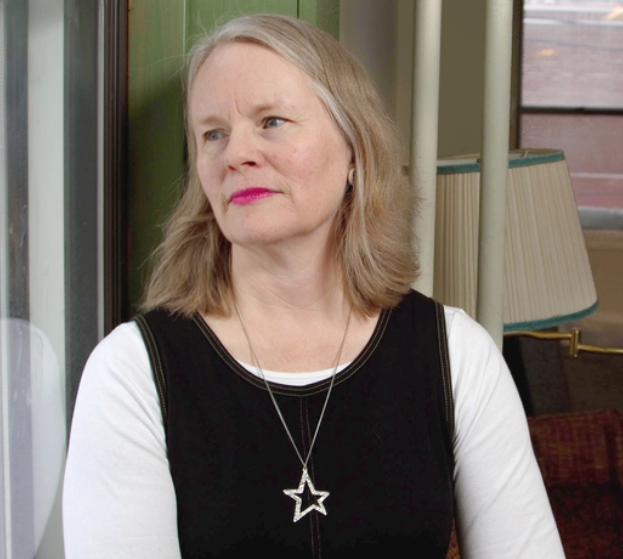Posted September 16, 2021
The Interview – Beverley Cooper
Beverley Cooper
Beverley Cooper is a writer, teacher, and actor. Her plays include: Clue in the Fast Lane (with Ann-Marie MacDonald); Thin Ice (with Banuta Rubess, Chalmers/Dora Award); The Eyes of Heaven; The Woman in White (from the novel by Wilkie Collins); The Lonely Diner: Al Capone in Euphemia Township; Janet Wilson Meets the Queen (nominated for Prix Rideau Award); If Truth Be Told and The Other: A Strange Christmas Tale. Innocence Lost: A Play about Steven Truscott was a finalist for a Governor General’s Literary Award and was on the Globe and Mail bestsellers list, a first for a Canadian playwright. She has also written for television, film, and extensively for CBC Radio Drama. Beverley is the coordinator of PGC’s The CASA Project, which aims to support women playwrights living in South Africa. Learn more about Beverley’s work at: www.BeverleyCooper.com
What do you like most about being a playwright?
I love all the different elements, each using different parts of my brain and psyche, that go into making a play. The curious part of my brain loves researching strands of the play that can be historic, scientific or cultural (though I have to be careful not to get lost down the research rabbit hole for too long). The solitary, searching part of my brain loves taking my coffee up to my office in the morning and working through a scene: endlessly trying to understand what it means to be human. The collaborative, social part of my nature loves being in rehearsals and watching the creative team bring my words and ideas to life, working through problems together. And then finally, sharing it all with an audience; which is both exhilarating and terrifying. I suppose that part represents my daredevil side…?
What is the hardest part about being a playwright?
Writing the first draft. I agonize through that process. I also struggle to keep self-doubt at bay. I try not to measure success – am I produced enough, celebrated enough, are my plays any good, are they relevant, will they get a second production, a third, more? We don’t become playwrights to make the big bucks so we have to love the creative process and let the rest go…
Who or what do you count among your inspirations and influences?
I think, probably like most artists, I am influenced and inspired every day by so many people, fellow artists included, or by moments I experience on my particular journey through life. I am driven by my outrage at the innumerable injustices in our world. In my plays, even those set in the past, I try to say something about the world we live in right now, so I would say there is always a bit of a political spice layered into my writing.
In more particular terms, I’m absolutely influenced by two of my brilliant long-time dramaturges/directors Miles Potter and Maureen White. And my first writing partner and dear friend, Ann-Marie MacDonald. Eric Coates, who gave me confidence because of his confidence in my work. The many women playwrights who fight the good fight in so many creative ways: Annie Baker, Caryl Churchill, Joan MacLeod, Hannah Moscovitch, Marcia Johnson, Andrea Scott, and Judith Thompson, and so many, MANY more. And there is an amazing Zimbabwean playwright and human that inspires me every day with her passion and commitment to playwriting, Thembelihle Moyo. I met her – and so many other extraordinary theatre creators at Women Playwrights International Conferences in Mumbai, Cape Town, Stockholm and Santiago. If you want to talk inspiration…I could probably fill a day…
What’s the best piece of playwriting advice that you’ve ever received?
I think it was Miles who said to me, a play starts with a question, and when that question is answered the play is over. The AD at Blyth, the marvelous Gil Garratt once said to me, “Your research hem is showing…” I love that idea and keep it close. I recently read an old article about playwriting that Marsha Norman wrote where she opines that fearmotivates characters and that notion had me scrambling to rewrite the play I am working on.
Your play about Steven Truscott, Innocence Lost, was the first Canadian play to appear on the Globe and Mailbestseller list. Why do you think that story strikes such a chord with audiences and readers?
Nothing else I’ve written has had as much impact on me or audiences as Innocence Lost. Audience members always want to know more: how did this happen in Canada? How did we almost hang a 14-year-old boy for a crime he did not commit? I think younger audiences see themselves in Steven Truscott – the wrongfully accused teenager. I think older audiences vividly remember that moment in history. Those who don’t know the story are curious to find out what happened. And all of us who are outraged and motivated by injustice are validated by how so many elements of society – the police, the military, the justice system, participated in the wrongful conviction of Steven Truscott. And of course, this is not a story about the past but is also about the present. Injustice hasn’t gone away.
Do you have a favourite memory in the theatre you could share—either at one of your own plays or someone else’s?
I will recount two.
One was as a high school student. I was in a production of Arsenic and Old Lace and the director told us about this wonderful production of a new play by a Quebecois writer named Michel Tremblay. It was Hosanna, starring Richard Donat and Richard Monette. It blew the top of my head off. All the possibilities of what theatre could be were jumpstarted in my brain when I saw that remarkable play.
The second was the closing night of the first production of Innocence Lost, at the Blyth Festival – which is smack dab right in the middle of where the story took place. I had arranged tickets for Steven, his wife Marlene and several of his childhood friends. I had asked Marlene if they wanted to slip in a side door so no one would bother them, but she declared adamantly, “We will come in the front door!” I knew I wanted to be there that night and when I got to my seat, I was sitting directly behind Steven. The packed audience and several of the cast knew he was there. I was watching Steven watch a play about his life. It was electric, terrifying and very moving.
Can you tell us about some of the work you have done during the pandemic?
I’ve found it hard to write. There are so many life-altering distractions! But, with no productions, I still need to put food on the table. I’ve been very lucky to have creatively fulfilling work, teaching, dramaturging plays, and directing audio books for Penguin Random House. I have a small grant to relook at my work through an audio lens. I worked in radio drama for years so this work takes me back to my roots! I also run a small charity that supports women playwrights in South Africa so that also keeps me very busy.
What are you working on now?
I’ve got two projects on the go – one is a play I am writing for the Blyth Festival called The Thinning Veil. It’s about a woman from Blyth named Maggie Pollock who, in 1919, was accused of witchcraft. I’ve been getting wonderful notes from Gil and Severn Thompson and I’m really excited about the direction it’s going. I’m exploring, not only what witchcraft means for a woman but also thoughts about life after death and the world beyond our understanding.
The other play I’m writing is for 4th Line Theatre. I want to take advantage of their sweeping outdoor space and large casts. So I’m writing something about Canadian involvement in the Spanish Civil War – partially following the true story of Jim Watts, who was a reporter for the Toronto Clarion and the only woman in the Canadian Mac Pap Battalion. Kim Blackwell is wonderful to work with, so open and smart and supportive. So, I’m jazzed about that.
And I am happy to say I finally got some good writing done this summer. I went – along with my dear, novelist pal, Cathy Buchanan, to Halls Island Artist Residency – it was a writer’s dream. Apparently, all I need to write is an off-the-grid island with no running water and a view.
Books by Beverley Cooper
-
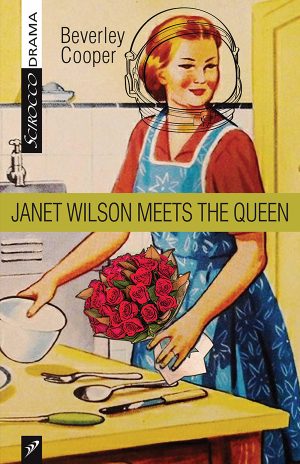 Janet Wilson Meets the Queen Paperback$15.95
Janet Wilson Meets the Queen Paperback$15.95 -
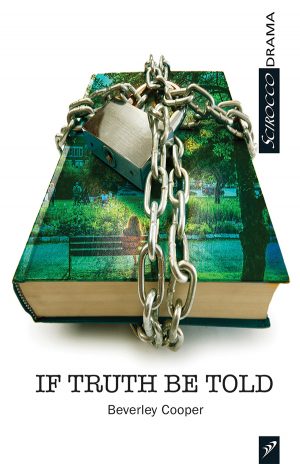 If Truth Be Told Paperback$15.95
If Truth Be Told Paperback$15.95 -
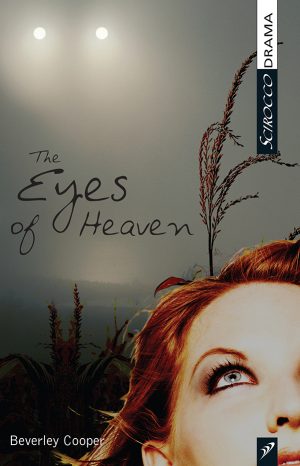 The Eyes of Heaven Paperback$14.95
The Eyes of Heaven Paperback$14.95 -
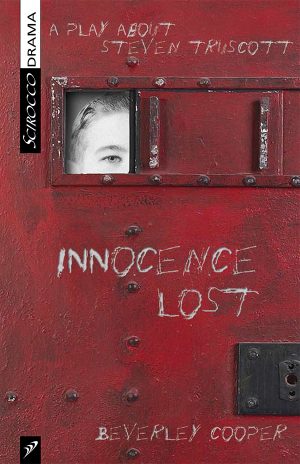 Innocence Lost: A Play about Steven Truscott$14.95
Innocence Lost: A Play about Steven Truscott$14.95 -
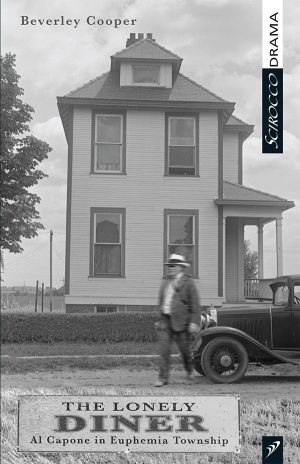 The Lonely Diner$15.95
The Lonely Diner$15.95

